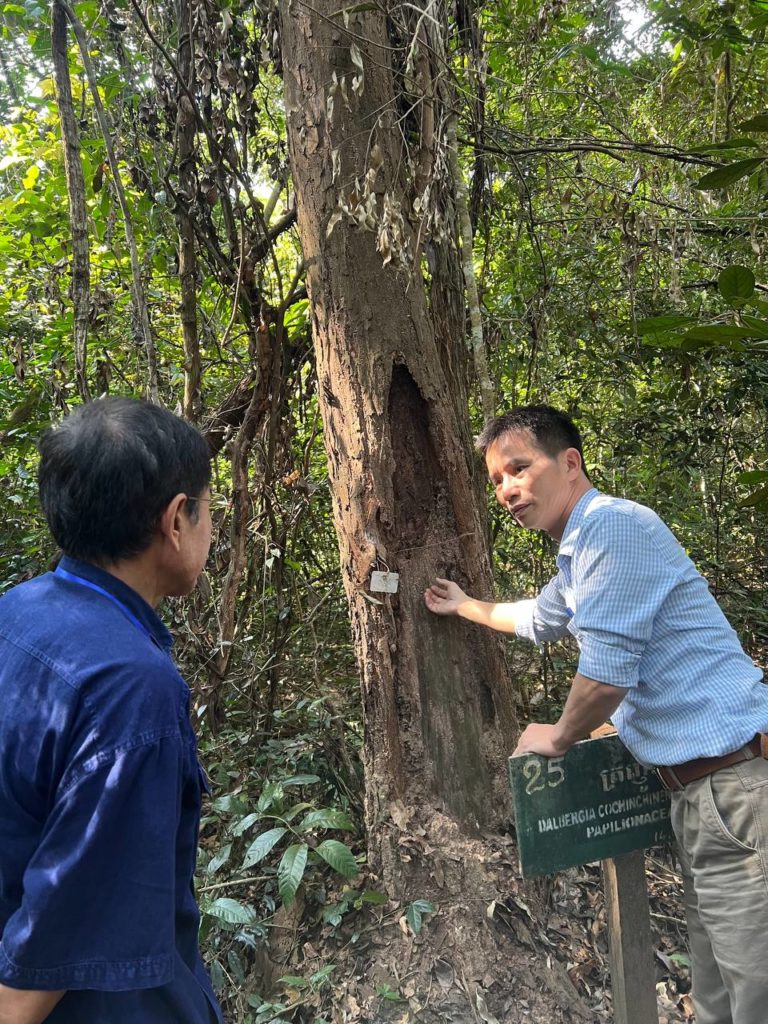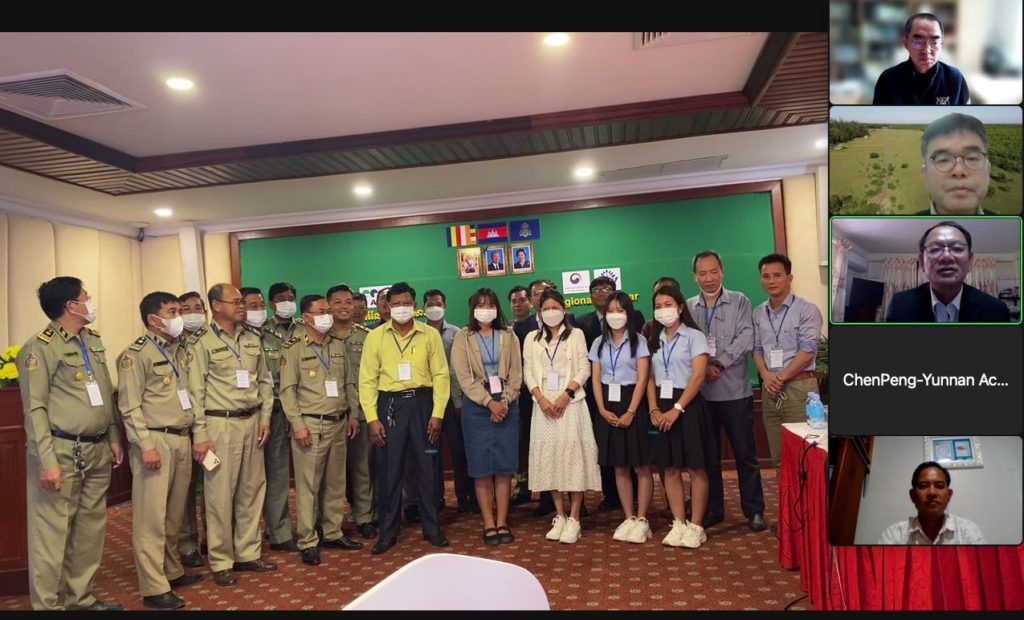December 22-23, 2022 — Forests and forest plantations are facing new and increasing threats from pests and diseases. Over the last two decades, numerous diseases and pests have emerged as major threats to forests and forest plantations in the Mekong sub-region. In this region, the ability to identify the pests and diagnose the signs and symptoms of tree diseases is constrained by limited knowledge on entomology and forest pathology.

With support from the National Institute of Forest Science (NIFoS) of the Republic of Korea, the Institute of Forest and Wildlife Research and Development (IRD) of the Forestry Administration of Cambodia has implemented the project “Establishment of Forest Tree Breeding Populations for Recovering the Devastated Sites” in conjunction with the project “Establishment of Forest Genetics Research Center for Restoration of Major Timber Species in Cambodia”, in which the main purpose is to establish the first seed orchards of major timber species in Cambodia. The possible outbreak of pests and disease that will affect the seed orchard has been recognized as a huge potential problem that must be prevented in advance. In anticipation of the potential risks, IRD organized the seminar to learn and share the experiences from the region (Cambodia, Laos, Vietnam, Thailand, and Myanmar), Korea and China in managing the forests pests and diseases. The seminar was conducted from 22 to 23 December 2022 in Angkor Paradise Hotel in Siem Reap province with a total of 28 participants.

The second day was devoted to a field visit to the Seed Orchard and Progeny Test Plantation established under the Landmark Program of AFoCO, and to the natural seed source of Dalbergia in Khun Ream where participants were able to see and observe some of the common pest and diseases there. Experts from other countries were invited to participate and present papers on pests and diseases including representatives from the AFoCO Secretariat, a professor from Seoul National University (SNU), a professor from Yunnan Academy of Forestry and Grassland (YAFG), researcher from NIFoS, and other respective representatives from Cambodia, Laos, Vietnam, Thailand and Myanmar.
The seminar provided an opportunity to exchange experiences among different countries in the region on the various practices and programs in managing the forest pests and diseases that threaten forests and seed orchards. The discussions revealed that the skills in pests and disease management are still lacking in the region, and there is generally, very limited support on this area. There are programs however, initiated in the region by international organizations such as ACIAR and University of Sunshine Coast in Australia in controlling pests and diseases attacking bamboo, eucalyptus, teak, acacia, and pine plantations. The prospect of using parasitoids and bacteria (Bacillus thuringensis and Penicillum pyricoides) has drawn some interest by the participants including practical pest control approaches (e.g. use of traps).
The workshop concluded with an emphasis on the need to foster stronger collaboration among the countries that shared common boundaries. The need for a collaborative effort through regional research initiatives was recognized to be of paramount importance among the participants particularly in controlling transboundary pests. Participants also highlighted the need for stronger support for the research and monitoring of the spread of infestations.


